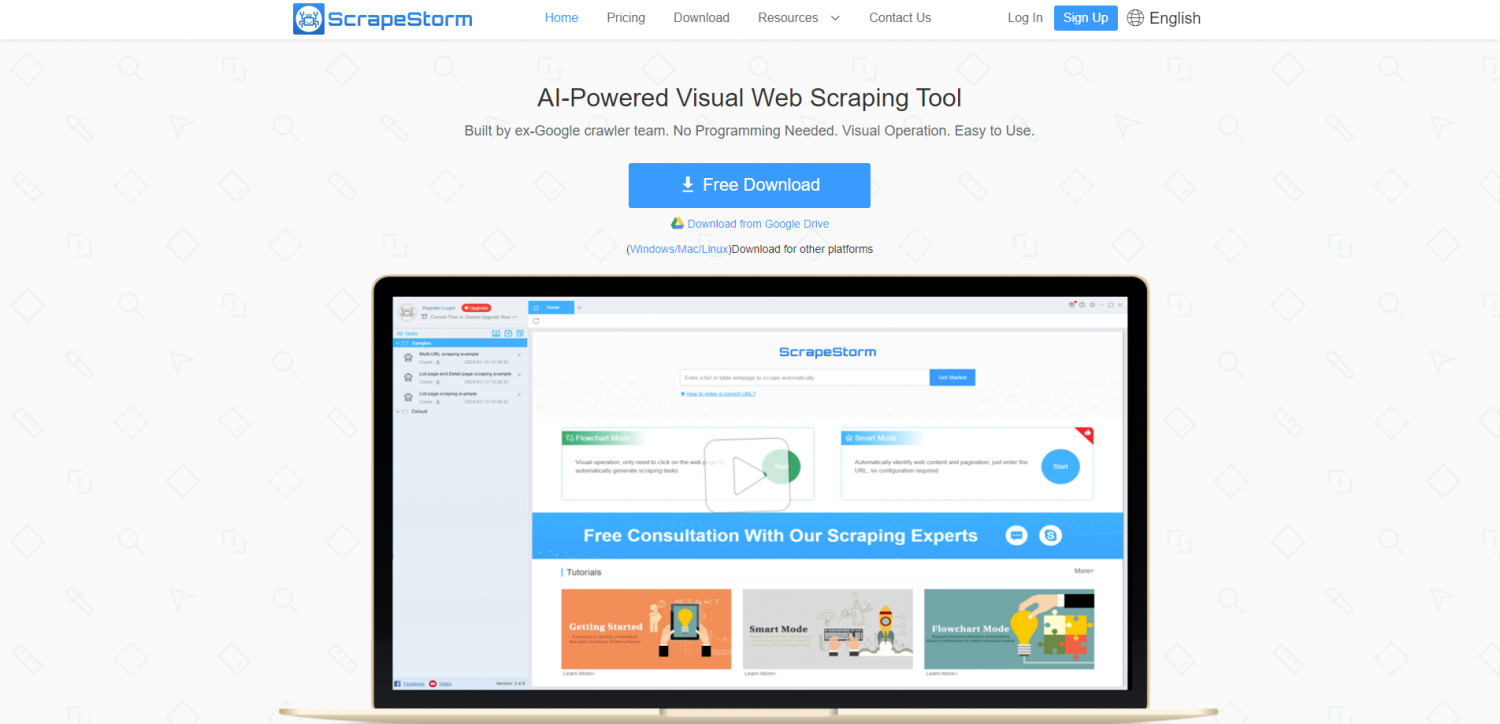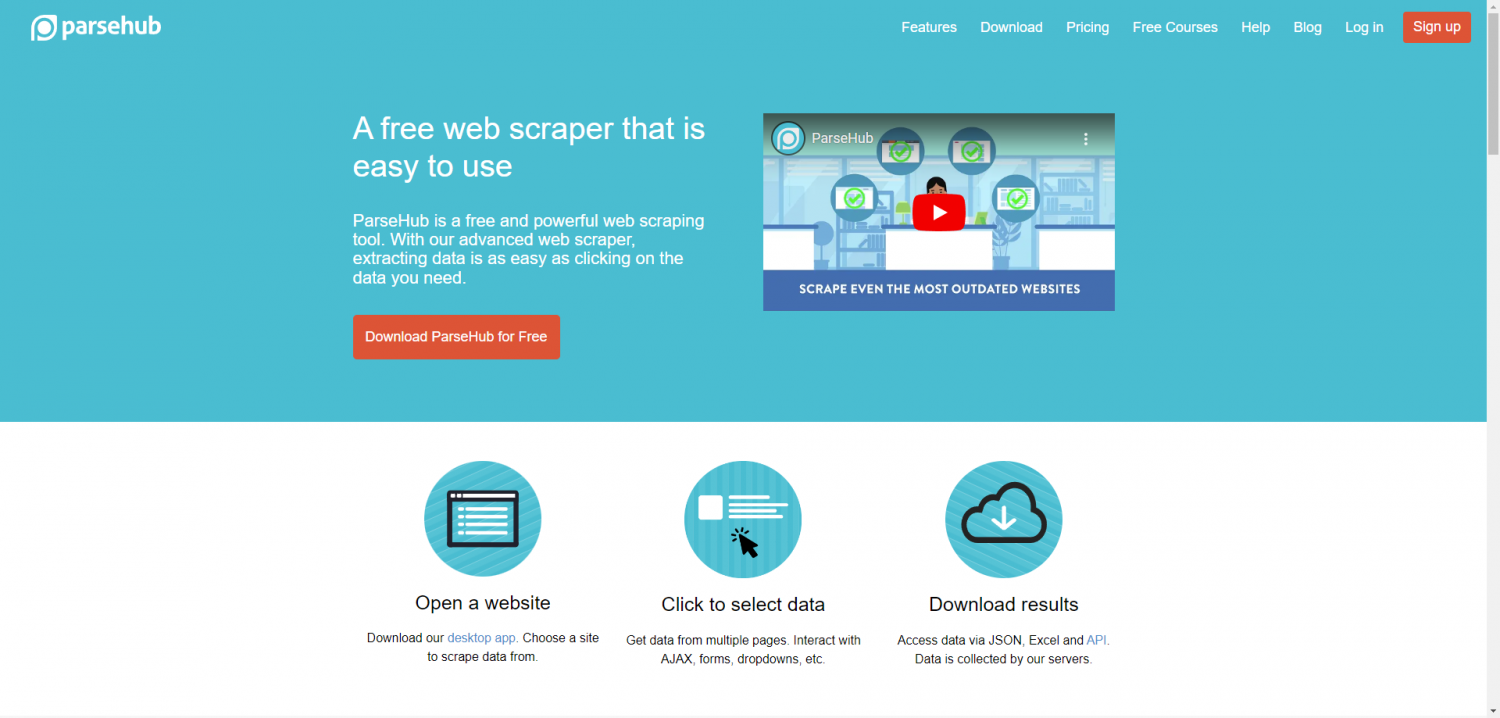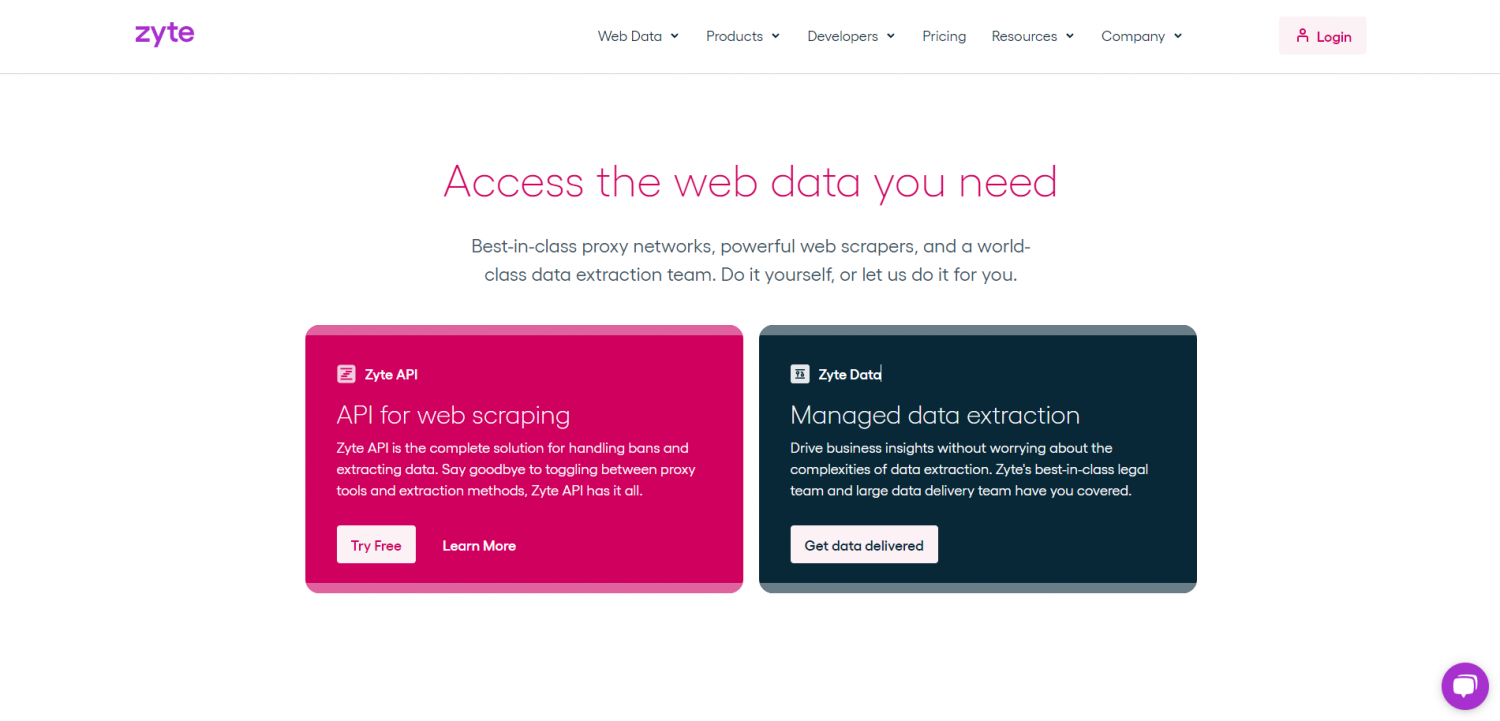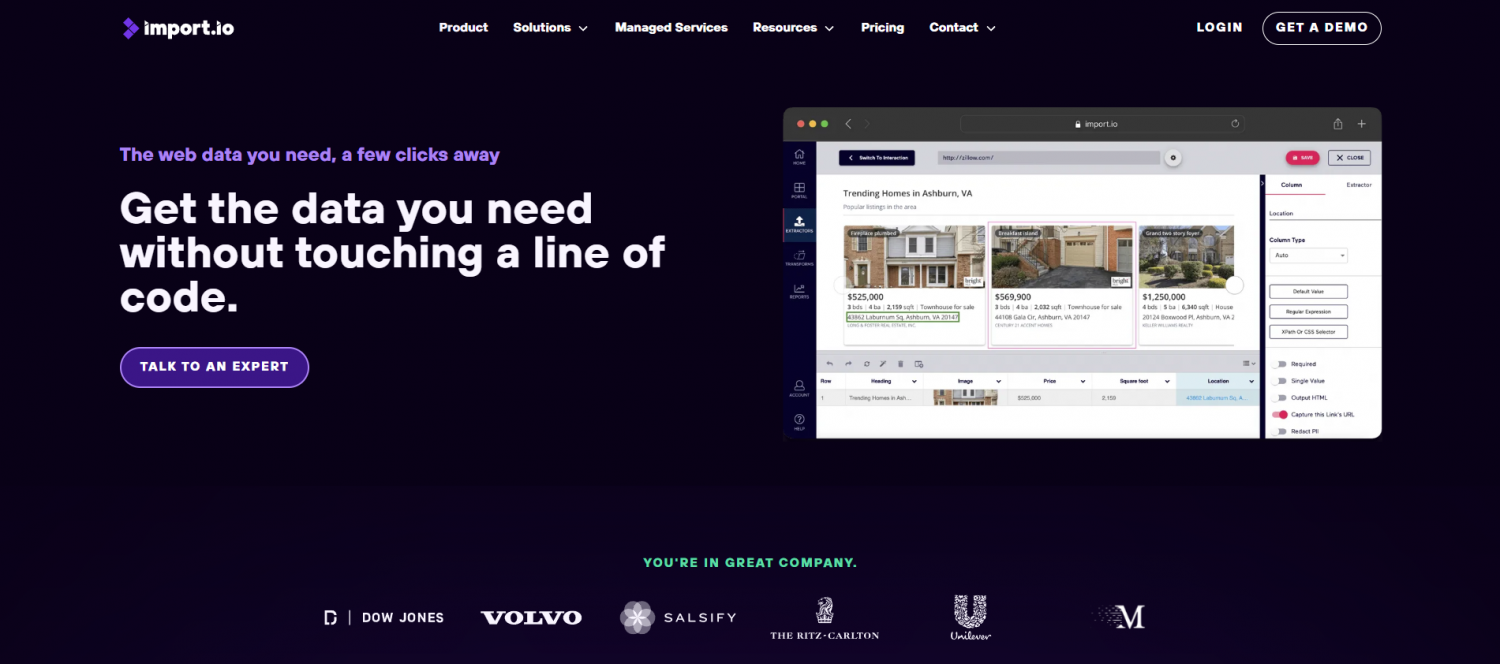Top 5 Web Scraping Tools in 2024
 Leo Q
Leo QWeb scraping tools are designed to grab the information needed on the website. Such tools can save a lot of time for data extraction.
Here is a list of 5 recommended tools with better functionality and effectiveness.
1. ScrapeStorm

ScrapeStorm is an efficient data scraping tool based on artificial intelligence technology that automatically detects and collects content by simply entering a URL. It supports multi-threading, scheduled collection and other functions, making data collection more convenient.
Features:
1)Easy-to-use interface.
2)RESTful API and Webhook
3)Automatic Identification of E-commerce SKU and big images
Cons:
No cloud services
2.ParseHub

ParseHub is a robust, browser-based web scraping tool that offers straightforward data extraction in a no-code environment. It’s designed with user-friendly features and functionalities in mind, and has amassed quite the following thanks to its free point of entry.
Features:
1)Easy-to-use interface.
2)Option to scheduling scraping runs as needed.
3)Ability to scrape dynamic websites built with JavaScript or AJAX.
Cons:
1)Although not steep, there might be a learning curve for absolute beginners.
2)It lacks some advanced feature sets needed by larger corporations, as reflected in its comparative affordability.

Dexi.io stands out for offering more than web scraping. It’s a specialist in intelligent automation, revolutionizing data extraction.
Features:
1)Can handle complex sites, including dynamic AJAX or JavaScript-filled pages.
2)Offers advanced logic functionality.
3)Delivers cloud-based operation, ensuring high-speed processing.
Cons:
1)The multitude of features might frustrate or bamboozle beginners.
2)Imperfections mean debugging is sometimes necessary.
4.Zyte

Zyte, rebranded from Scrapinghub, is a comprehensive no-code web scraping solution offering powerful automation capabilities beyond basic data extraction.
Features:
1)IP rotation to counter blocking while scraping.
2)Built-in storage for scraped data, supplied via the cloud.
3)Additional services such as data cleansing available.
Cons:
1)Prioritizes a hands-off approach, so it’s less like web scraping, and more like outsourcing.
2)Offers an API for total data collection control, but this requires more technical knowledge to harness

Import.io champions itself as a comprehensive tool for turning web pages into actionable data, seamlessly catering to personal use and professional requirements. Machine learning integration lets it understand how you want it to work, and get better over time.
Features:
1)User-friendly dashboard and flexible API.
2)Real-time data updates.
3)Intelligent recognition makes scraping even from complicated sources easy.
Cons:
1)May struggle with websites using AJAX or JavaScript.
2)Some learning curve involved in setting up more complex scrapes.
Subscribe to my newsletter
Read articles from Leo Q directly inside your inbox. Subscribe to the newsletter, and don't miss out.
Written by
